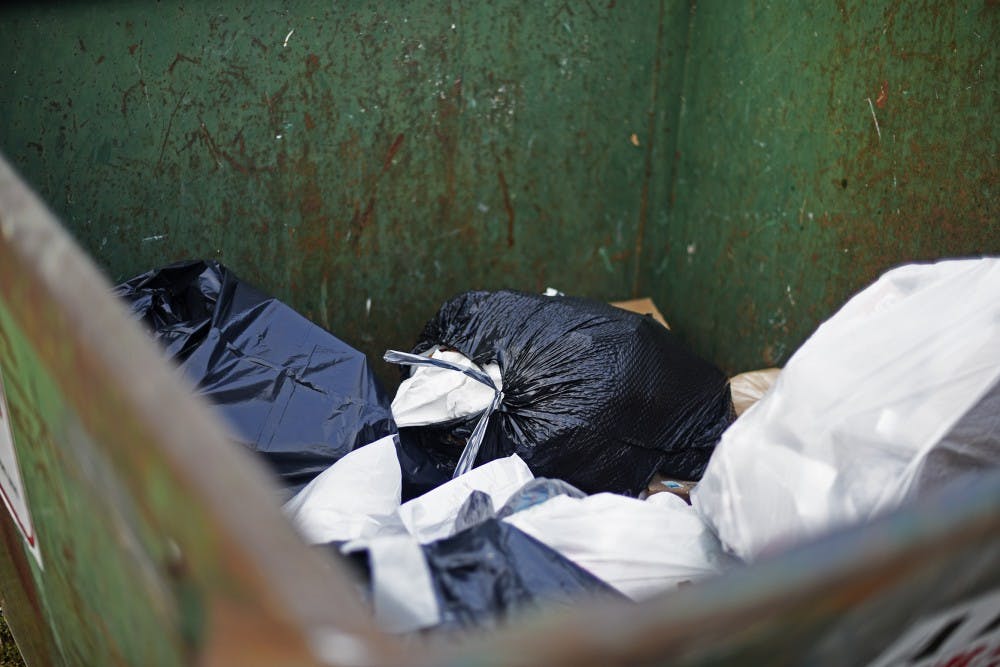The Athens garbage fund currently has nearly a million dollars in it and helps manage several contracts concerning waste pickup, trash cans and composting.
Currently, the total amount in the garbage fund is $989,000, said City Auditor Kathy Hecht. However, that amount is subject to change.
“So, the thing about how much is in there is it changes constantly,” Hecht said. “People pay their bills, it’s added to the account.”
Money is also removed from the account to pay for contracts. Some of the contracts include garbage and recycling pick-up, the compost pilot program and the Bigbelly trash can contract.
Councilman Pat McGee, I-At Large, said that the city pays a contract of $50,000 per year for 20 Bigbelly trash cans. Those trash cans can be found Uptown. Deputy Service Safety Director Ron Lucas said that Athens continues to pay a contract for the Bigbelly trash and recycling cans since they are being leased.
“They’re not a lease-to-own,” Lucas said. “That’s a lease we pay as long as we have those units uptown.”
In addition to leasing Bigbelly cans, the city also has to pay for the waste to be disposed of. This comes in the form of a contract with Athens-Hocking Recycling Centers. That contract is about $100,000 a year and is the largest payment made through the garbage fund.
In total, the city budgeted over one million dollars for recycling and garbage pickup this year. That cost includes additional pickup when necessary.
“There’s also some special events that happen that we need to make sure we have refuse services for,” Lucas said. “Things like the homecoming parade, Halloween. Those are expenses from the company that does our collection that are outside of the normal scope of the work.”
The compost pilot program also draws its contract money from the garbage fund.
The program has ended, but extending the program for an additional six months is a topic of discussion for City Council. Lucas said that the compost pilot program costs the city $6,100 a month. A new contract might expand the composting program. But, the cost of the program for the city should remain the same.
“We’re hoping to offer curbside composting to all of our residents with the new contract,” Lucas said. “Right now, it’s a pilot program, people can sign up for it. That’s being paid for with the same fund but it’s not the impact of the refuse collection. It’s not in the same ballpark in terms of price.”
McGee said that he has also been approached by an additional composting company for providing the city with a composting service. The company specializes in plastic composters, which could help save the city a lot of money.
McGee has also been critical on the amount of money in the garbage fund in the past. Hecht said that fund’s content is high in order to pay for contracts and payroll. Once money is in the garbage fund, it can only be used for waste purposes.
“We’re not supposed to be in the business of making money,” Hecht said. “We’re required to charge enough to cover our expenses because that money goes in the garbage fund and it’s the only thing it can be used for. So, we do have a responsibility to charge enough to cover our expenses, however, we shouldn’t just be stockpiling a lot of money. It’s an expensive operation.”






